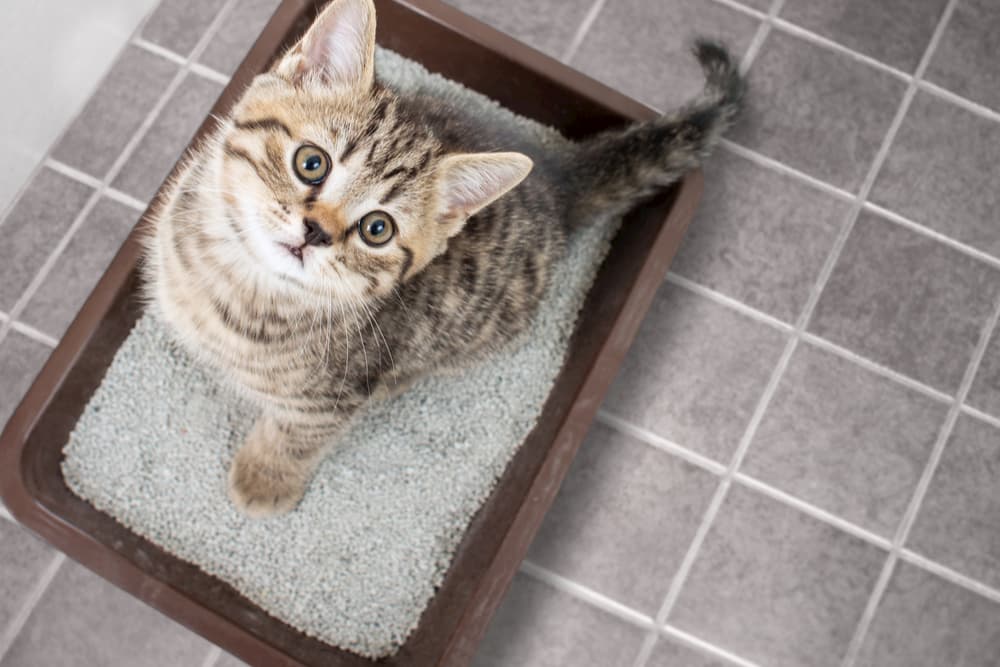How do you feel in regards to Don’t flush cat feces down the toilet?

Intro
As feline owners, it's vital to be mindful of just how we take care of our feline pals' waste. While it may seem practical to flush cat poop down the commode, this method can have detrimental effects for both the environment and human wellness.
Environmental Impact
Purging cat poop presents hazardous virus and bloodsuckers into the supply of water, presenting a significant danger to marine environments. These impurities can adversely impact aquatic life and compromise water top quality.
Health Risks
Along with environmental problems, purging cat waste can additionally posture wellness threats to humans. Cat feces may contain Toxoplasma gondii, a bloodsucker that can create toxoplasmosis-- a possibly severe health problem, specifically for expecting ladies and individuals with weakened immune systems.
Alternatives to Flushing
Thankfully, there are safer and much more accountable ways to throw away cat poop. Take into consideration the complying with options:
1. Scoop and Dispose in Trash
One of the most typical method of taking care of feline poop is to scoop it right into a biodegradable bag and throw it in the garbage. Make certain to use a devoted trash inside story and throw away the waste without delay.
2. Usage Biodegradable Litter
Opt for naturally degradable feline trash made from materials such as corn or wheat. These trashes are eco-friendly and can be safely thrown away in the garbage.
3. Bury in the Yard
If you have a lawn, consider burying pet cat waste in a marked location away from vegetable yards and water resources. Make sure to dig deep enough to prevent contamination of groundwater.
4. Mount a Pet Waste Disposal System
Buy an animal waste disposal system especially developed for pet cat waste. These systems use enzymes to break down the waste, reducing smell and ecological impact.
Conclusion
Liable pet ownership prolongs beyond offering food and shelter-- it also entails correct waste administration. By avoiding purging cat poop down the bathroom and opting for alternate disposal approaches, we can decrease our environmental footprint and secure human wellness.
Why Can’t I Flush Cat Poop?
It Spreads a Parasite
Cats are frequently infected with a parasite called toxoplasma gondii. The parasite causes an infection called toxoplasmosis. It is usually harmless to cats. The parasite only uses cat poop as a host for its eggs. Otherwise, the cat’s immune system usually keeps the infection at low enough levels to maintain its own health. But it does not stop the develop of eggs. These eggs are tiny and surprisingly tough. They may survive for a year before they begin to grow. But that’s the problem.
Our wastewater system is not designed to deal with toxoplasmosis eggs. Instead, most eggs will flush from your toilet into sewers and wastewater management plants. After the sewage is treated for many other harmful things in it, it is typically released into local rivers, lakes, or oceans. Here, the toxoplasmosis eggs can find new hosts, including starfish, crabs, otters, and many other wildlife. For many, this is a significant risk to their health. Toxoplasmosis can also end up infecting water sources that are important for agriculture, which means our deer, pigs, and sheep can get infected too.
Is There Risk to Humans?
There can be a risk to human life from flushing cat poop down the toilet. If you do so, the parasites from your cat’s poop can end up in shellfish, game animals, or livestock. If this meat is then served raw or undercooked, the people who eat it can get sick.
In fact, according to the CDC, 40 million people in the United States are infected with toxoplasma gondii. They get it from exposure to infected seafood, or from some kind of cat poop contamination, like drinking from a stream that is contaminated or touching anything that has come into contact with cat poop. That includes just cleaning a cat litter box.
Most people who get infected with these parasites will not develop any symptoms. However, for pregnant women or for those with compromised immune systems, the parasite can cause severe health problems.
How to Handle Cat Poop
The best way to handle cat poop is actually to clean the box more often. The eggs that the parasite sheds will not become active until one to five days after the cat poops. That means that if you clean daily, you’re much less likely to come into direct contact with infectious eggs.
That said, always dispose of cat poop in the garbage and not down the toilet. Wash your hands before and after you clean the litter box, and bring the bag of poop right outside to your garbage bins.
https://trenchlesssolutionsusa.com/why-cant-i-flush-cat-poop/

Do you appreciate reading about Don’t flush cat feces down the toilet? Leave a remark down below. We'd be pleased to listen to your thinking about this write-up. Hoping that you visit us again later on. If you liked our page if you please be sure to pass it around. We love reading our article about How to Dispose of Cat Poop and Litter Without Plastic Bags.
Get A Free Estimate